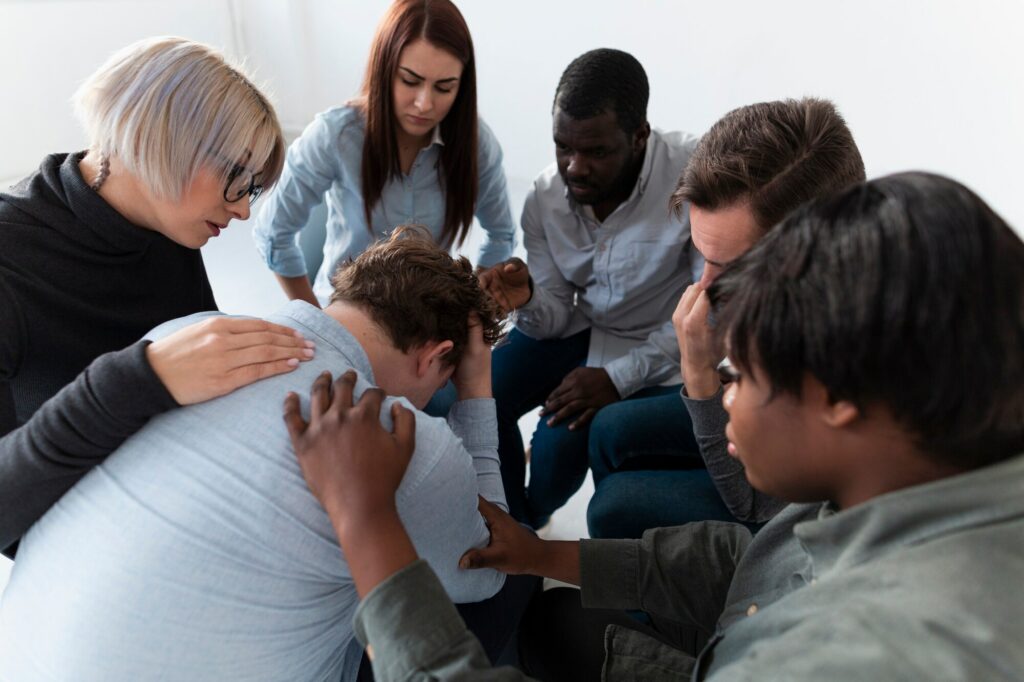Healing Together – The Importance of Community in Sexual Abuse Recovery

People who have been sexually assaulted or raped may have a difficult time developing close relationships. They often feel confused about intimacy and have a skewed understanding of love.
Support from loved ones is essential. Having a trauma-informed therapist can also be helpful. Taking part in social activities with others who care about you is another excellent way to heal.
Support from Others
Whether you are supporting someone in recovery from sibling sexual abuse or trying to understand the impacts of this type of trauma, there is much you can do. It is important to remember that every survivor is unique, but some suggestions on how you can support a friend or loved one include:
Avoid touching the person. Although feeling the urge to comfort a survivor may be natural, physical touch can be harmful. Words, tone of voice, and body language better demonstrate your support.
Adults who experience sexual violence describe a wide range of responses that aim to heal, recover, and manage their lives. It includes regulating relationships with others through tightening and loosening boundaries, maintaining or breaking off contact with family members and perpetrators, disclosing/not disclosing the violence to others, seeking forgiveness/obtaining justice, and more. We have called this synthesis of these responses “regulating relationships with others.” These individuals also work to make sense of the violence through labeling, understanding, reframing, and finding purpose.
Share Your Experiences
The trauma of sexual assault and abuse can leave survivors feeling shame, guilt, or fear. Many survivors experience a sense of brokenness and may feel like they don’t deserve help or that their assault was somehow their fault. This is particularly true for male sexual abuse survivors, who are less likely to seek assistance or speak out about their experiences.
Listening to and believing survivors is an integral part of the healing process. It is also an essential way to show someone you care about them. If you’re not sure how to aid a friend or relative, think considering getting information from your neighborhood rape crisis center.
You can also offer to assist your friend with any upcoming decisions they will need to make, such as whether to report their assault, whether or when to seek medical attention, or if they want to go through a forensic exam. However, don’t take over or assume any decision they make.
Connect with Others
For many survivors, re-establishing connection with loved ones is a crucial step in healing from sexual trauma. It can be challenging when family and friends have shaming or minimization reactions to the abuse or when victims feel that they are not believed or supported at all.
Connecting with others doesn’t have to mean discussing or dwelling on the trauma, and even talking about other things can be healing. Spending time with other people who care about you can be very healing, and doing everyday activities that have nothing to do with sexual trauma may help reduce intrusive memories and feelings of danger.
Survivors may also benefit from connecting with other people who have experienced similar trauma in a support group, which can provide validation and empathy as well as opportunities to learn new coping skills and strategies for managing the effects of trauma. Taking medicine to treat symptoms like depression and anxiety that may be connected to trauma also brings relief to some people.
Share Resources
Many survivors may have concerns about how they will receive resources and services, especially if they are part of marginalized communities. Understanding these concerns and being prepared to help address them is essential. It might mean providing additional information or connecting with local organizations or national support networks that provide online support, counseling, and group meetings.
Talking about sexual assault can be challenging, and it is expected to want to avoid conversations or situations that remind you of the abuse. However, It is critical to remember that these emotions are common and will pass. Having someone who can listen and understand can make all the difference. It can be a family member, friend, hotline counselor, or therapist.
Survivors can also become activists for social changes that will end sexual violence by raising awareness through art projects, marches, or by speaking to lawmakers. Many activists start by connecting with others who share similar experiences and passions.
